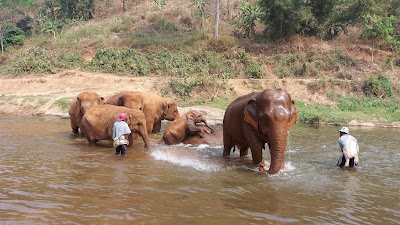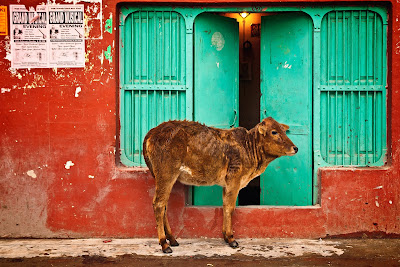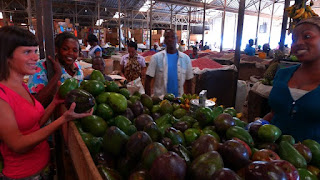And you, do you go to the responsible side of tourism?
When you travel… do you stay in a hotel chain or in a small hostel? Do you eat in a well-known fast food or in a traditional cuisine restaurant? Are you going to listen to the songs of summer or do you prefer to discover the rhythm of the local music?
On June 2, we invite you to celebrate the World Responsible Tourism Day discovering a new way of traveling. Here are 4 tips that at Tumaini we always apply to ensure that our impact in the communities we visit is positive:
1. Training, training and more training
Do you still think that your journey begins when you take the plane? It isn't true! The road starts long before, when we open the travel guide or take a look at the news of the countries we are going to visit. And although it may not seem like it, this step is essential to get the most out of your trip. If you want to understand the culture you are visiting, understand its people better and become aware of the social problems you are going to see, prior training is essential.
All the people who travel with Tumaini carry out before leaving a Online course on education for development, sustainable tourism and responsible consumption. In addition, they read all kinds of documentation about the countries they are going to visit, their social problems and the local projects with which they are going to collaborate. In this way, future volunteers soak up the local culture and get an idea of what tasks or initiatives their collaboration can be most useful for.
For example:
👉 A person can travel to Thailand and take an elephant tour.
👉 A person who has been informed and trained will know that riding elephants is very harmful to these animals, so they will not do it.
Another example:
👉A person can travel to Nepal and give money to boys and girls who ask.
👉A person who has been informed will know that giving money to minors is harmful, since it can contribute to truancy.
 |
| Joan traveled to Thailand to help in a sanctuary for rescued elephants. |
2. Accommodation and food in the project
If you travel to Kenya but you stay in an international chain of hotels, the local economy of that country you will not get any benefit from your trip. The same goes for food. In Delhi, you can have breakfast at a well-known chain of cafes, but the family restaurant of a lifetime will be the loser.
For this reason, most of our solidarity trips include:
- Accommodation in the same local project with which we collaborate, along with other volunteers
- Maintenance also in the local project.
The benefit that local organizations get thanks to the accommodation and food of volunteers It is used for social projects and environmental issues of those NGOs keep going.
| In Lamay, Peru, the volunteers stay in the project itself. |
3. Consumption that empowers
At Tumaini we are aware that our consumption can determine whether or not a trip is responsible. For this reason, we insist that volunteers use the public transport and that they consume local products and services so that the benefit goes to the community we are visiting.
For example:
👉 A person who travels to Peru buy food in a large store.
👉 If the person is aware of the impact of their consumption, they will buy at the local market. Also, you will discover that the fruit that the market sells is the best in the country! 🙂
| Lucas traveled to Peru and consumed at local businesses to help the community. |
4. Respect for diversity
I don't understand anything! Because in India, the cows roam freely and even stop traffic? Because in Peru eat guinea pig? Because in Kenya Are displays of affection in public frowned upon? Why some women in Bolivia do they wear a bowler?
Knowing and respecting the local culture, customs and languages is essential for a responsible trip. It favors dialogue and mutual enrichment and protect diversity. At Tumaini we give basic advice on how to get closer to a certain culture and we also encourage travelers to discover local cuisine, music, art and customs. It will be one of the most enriching aspects of the trip!
 |
| In India, you will be able to see free cows walking the streets. |




